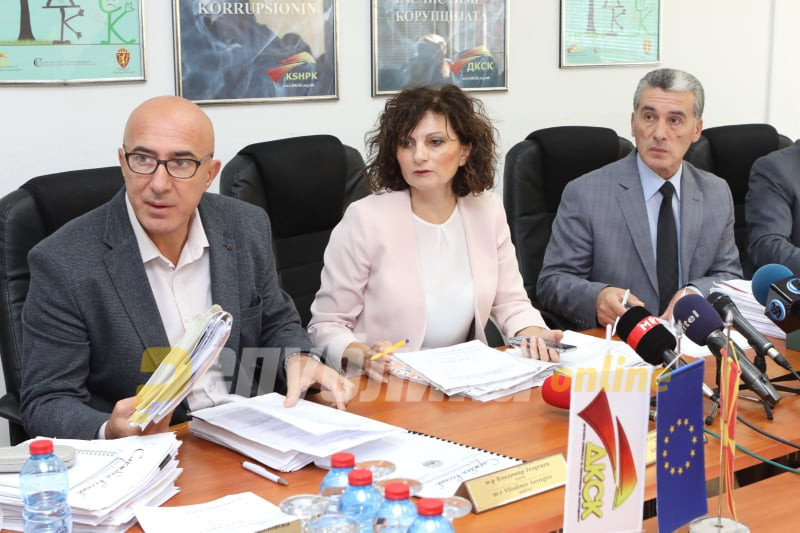During its five-year tenure, the State Commission for the Prevention of Corruption (SCPC) initiated a total of 2872 cases, with 2788 stemming from reports within the corruption prevention field and 84 initiated by the Commission itself. Out of these cases, the SCPC successfully resolved 2451, presenting 59 initiatives for assigning responsibility to officials and individuals in managerial positions, along with 56 initiatives to instigate criminal prosecution procedures. President Biljana Ivanovska stated during a media briefing on Wednesday, preceding the conclusion of the Commission’s term, that not a single initiative for the commencement of criminal prosecution has been processed. During its five-year term, the State Commission for the Prevention of Corruption (SCPC) handled 2872 cases, with 2788 based on corruption prevention reports and 84 initiated by the Commission. Of these, 2451 cases were resolved, and 59 initiatives were submitted to hold officials accountable, along with 56 initiatives for criminal prosecution. Notably, none of the criminal prosecution initiatives have been processed, according to SCPC President Biljana Ivanovska. She emphasized the need for fundamental changes in the judicial system and lamented the lack of implementation of decisions and recommendations by independent bodies, echoing concerns raised in the European Commission’s reports.
Ivanovska highlighted the SCPC’s satisfaction with initiatives for criminal prosecution and responsibility determination, targeting high-profile officials. Despite facing challenges, such as a lack of necessary conditions for effective work, the SCPC expressed pride in its efforts, including initiatives submitted to the Constitutional Court.
The Commission’s President acknowledged that while they didn’t face direct pressures or threats, they encountered public pressures, including statements from deputy prime ministers and the Public Prosecutor’s Office’s decision to cease cooperation.
Commission member Nuri Bajrami noted a lack of political will for reform, suggesting that institutions often serve to reward partisan members with managerial posts.
As the SCPC’s term concludes, Ivanovska expressed satisfaction with securing necessary resources and an increased budget, thanks to international assistance. The new composition of the SCPC, elected by Parliament, will take over on February 8. The current composition will hold one final session on Monday.





Comments are closed for this post.